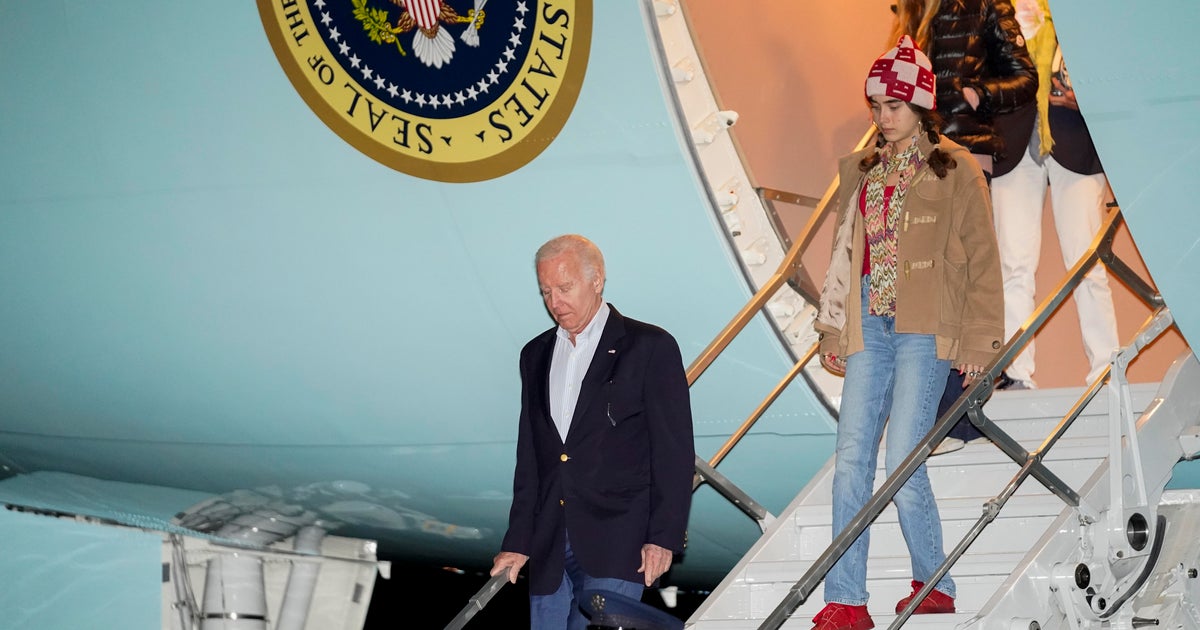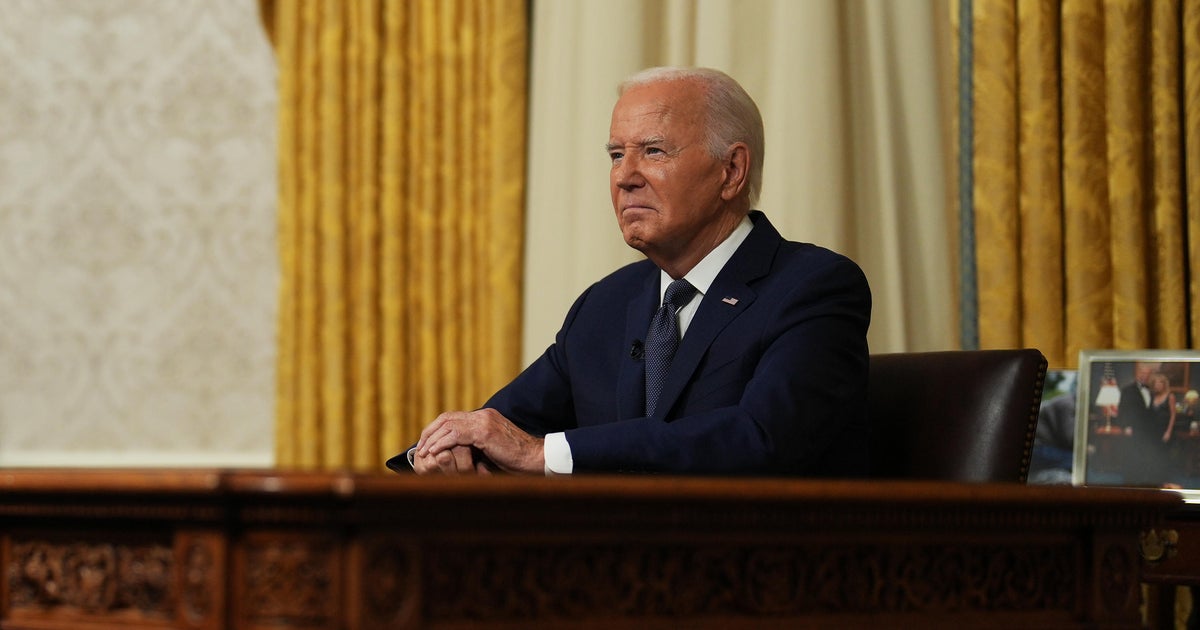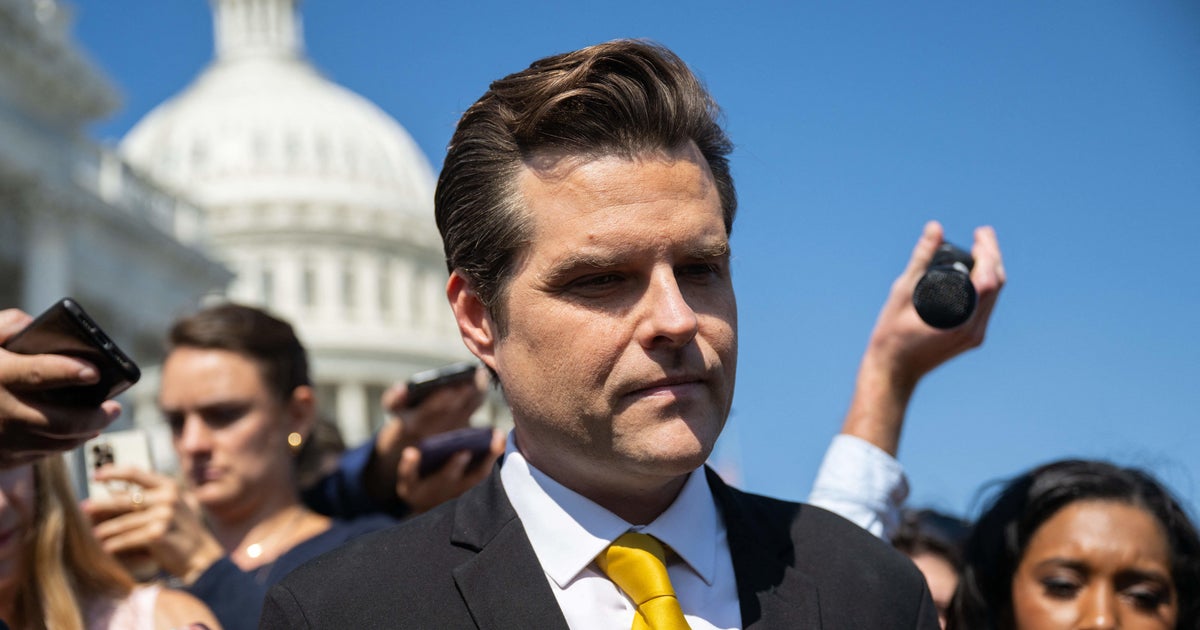Eric Swalwell stands up for the press, assailed as "enemy of the people" by Trump
By now, it's hard to imagine that anyone who follows national news is unaware of the antagonistic relationship between the White House and press. President Trump's animosity toward the press, which he regularly refers to as "the enemy of the people," has been one of the hallmarks of his presidency. The Committee to Protect Journalists noted that from June 2015, when he was a presidential candidate, through mid-January 2019, Mr. Trump posted 1,339 tweets about the media "that were critical, insinuating, condemning, or threatening."
Now, White House press briefings, which took place nearly daily under former Presidents George W. Bush and Obama, have become so rare that their occasional occurrences have themselves become news events.
One of the Democratic presidential candidates, Eric Swalwell, a California congressman, wants to see a return to better relations with the press and is even making this a part of his campaign. On Friday, he released a set of reforms aimed at reestablishing civility and transparency between the press and White House.
He's pegging the initiative to the United Nations' World Press Freedom Day, and it's as much a criticism of Mr. Trump's handling of the media as it is a reaction to threats against journalists, which may be drawing inspiration from the president's attacks on the press. When a California man with more than 20 firearms in his house called The Boston Globe last year and threatened to kill its journalists, authorities said, he invoked the phrase "enemy of the people."
"The age of labeling journalists as 'enemies of the people' will end with Donald Trump's departure, and will be remembered as an anti-democratic travesty," Swalwell said in a statement.
If elected president, Swalwell promises to hold regular briefings, ensure the Freedom of Information Act (FOIA) office is fully compliant and urge Congress to pass a bill he introduced in March to make certain attacks on the press federal crimes. He also said he would encourage the passing of a law to protect journalists from being jailed for protecting their sources.
Swalwell is polling at around 1 percent and is considered a long-shot for the Democratic nomination. Though Mr. Trump's vitriol toward the press is notable, he's certainly not alone among politicians of either party in distrusting the media. Swalwell's proposed reforms stand as an unusual statement of support for the press.
"As president, I'll make sure that journalists have the access, protections, and resources they need to report on my administration," Swalwell said.
Although Swalwell framed the Trump White House's infrequent briefings as a lack of transparency, the administration has offered different explanations.
"We get information out in a number of different ways," White House press secretary Sarah Sanders told CBS News' Mark Knoller last summer, citing social media.
She has a point. The president, much more than Mr. Obama, uses Twitter to communicate his thoughts on a regular basis. There may not be regular press briefings, but as CBS News chief Washington correspondent Major Garrett has noted, President Trump engages with reporters more frequently than either former Presidents Obama or Bush did. He regularly answers questions, sometimes at length, as he's departing the White House, and often talks with reporters during photo ops.
Sanders also argues that some reporters use the briefing room to show off before TV cameras, rather than to seek information. Mr. Trump has repeatedly justified his name-calling and attacks on the press by claiming outlets are unfair in their coverage of him.
Swalwell, however, says that doesn't matter.
"I know it's a cornerstone of America, and my presidency will protect and respect it regardless of how I'm covered."




